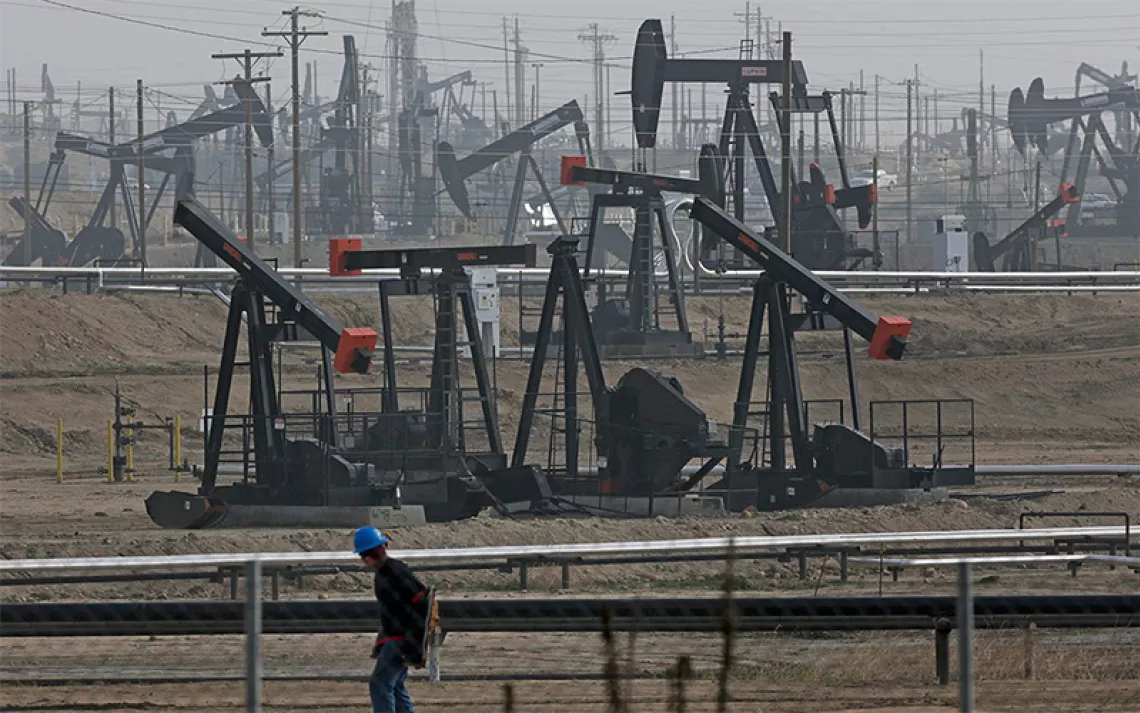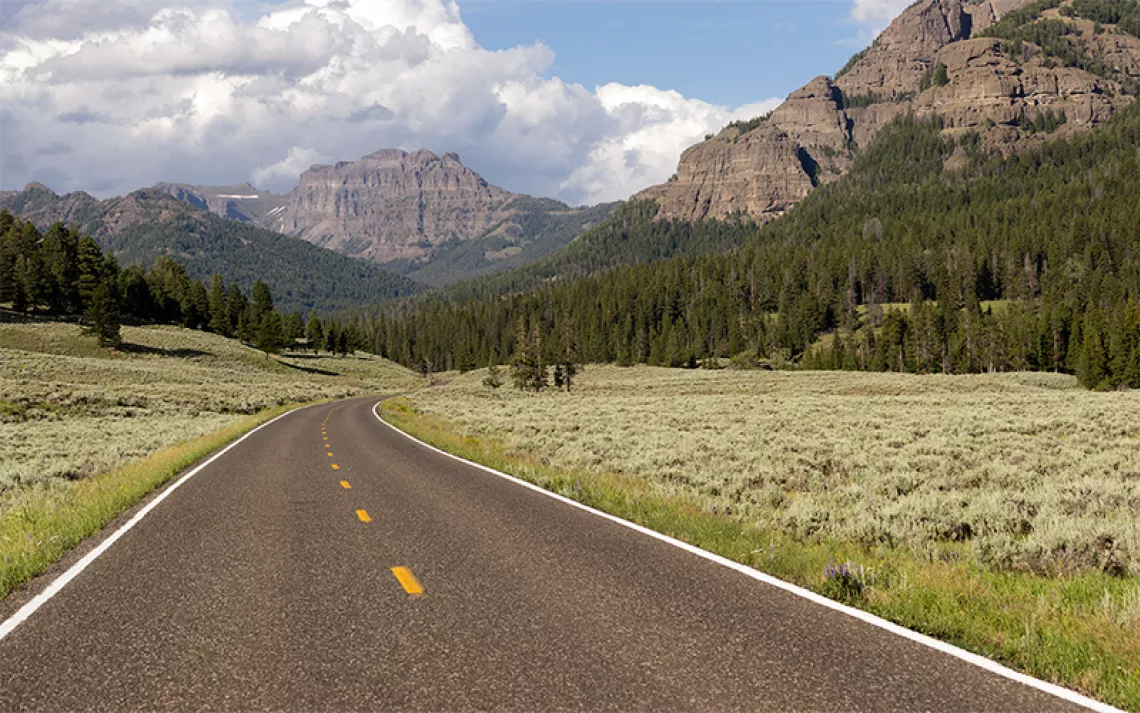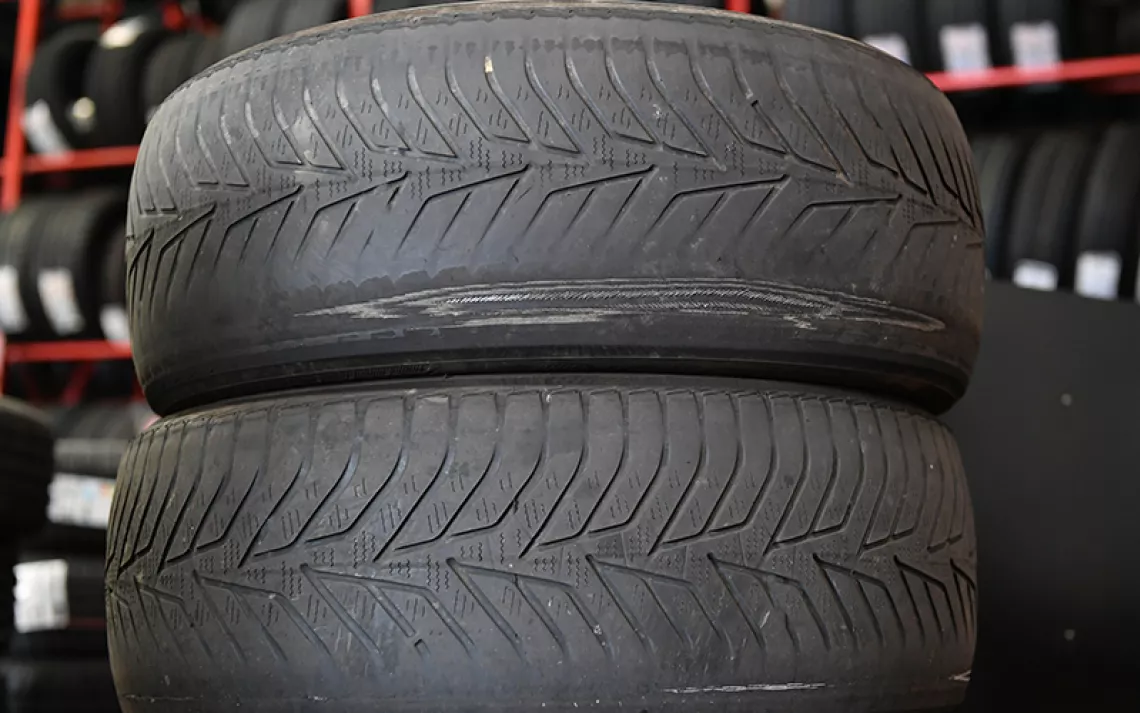Trump Versus California
In attacking clean-car standards, Trump takes on an opponent who can punch back

President Donald Trump talks with then-governor-elect Gavin Newsom in November 2018. | Photo by AP Photo/Evan Vucci
California isn’t wild about Donald Trump. In 2016, 61.7 percent of the state's voters chose Hillary Clinton, and today 57 percent favor impeaching Trump. The animus is mutual: Trump has threatened to withhold federal emergency aid for the state’s disastrous wildfires and is now engaging in a multipronged offensive against the Golden State's efforts to preserve its strong auto-emission standards. Trump’s actions—ostensibly meant to support the auto industry—have instead torn it apart.
*Record scratch*
*Freeze frame*
You're probably wondering how we got here. It all began shortly after Trump's 2016 electoral victory, when the big automakers—including those that Barack Obama had rescued from ruin—realized their tactical advantage and began clamoring for a relaxation of Obama's 2012 Clean Car Standards, an initiative to nearly double the fuel economy of cars and light trucks by 2025. Trump proved receptive to the idea. While it is theoretically possible that he truly believes that making cars less fuel efficient will result in (as he declared on Twitter) "Better, Cheaper, Safer Cars for Americans," history strongly suggests that a more likely motivation is his abiding desire to expunge Barack Obama and all his works.
The automakers got what they wanted—and then some. In addition to watering down the standards, Trump also proposed ending California's long-held right to set its own, stricter auto-emission standards, an exemption it had originally gained through the efforts of Republican icon Ronald Reagan. The automakers knew that meant war. "While the chief executives of auto companies last year asked Mr. Trump to loosen the Obama-era rules," noted The New York Times, "they have since asked him not to pull them back quite so far."
It was too late. California officials quickly let it be known that they were not to be messed with. In May, Mary Nichols, chair of the California Air Resources Board, suggested that the state might consider “an outright ban on internal combustion engines.” More diplomatically, California and the 13 other states (plus the District of Columbia) worked out a somewhat weakened standard that would preserve California’s special status. In July, Ford, Honda, BMW, and Volkswagen (still seeking absolution, perhaps, for its diesel-cheating scandal) cut a deal with California on the new standards, blindsiding and enraging the White House, which declared the move a "PR stunt."
The Empire struck back, in a variety of ways. On September 18, Trump revoked California’s exemption by tweet. His Justice Department opened an antitrust investigation of the four automakers, saying it was looking into whether they “violated federal competition law by agreeing with each other to follow tailpipe emission standards beyond those proposed by the Trump administration.” The EPA threatened to withhold federal highway funds from California for alleged violations of the Clean Air Act and further claimed that the state’s homelessness crisis was causing it to violate the Clean Water Act.
Then, in October, after fierce lobbying by the White House, General Motors, Fiat Chrysler, Toyota, and nine other automakers signed on to Trump’s attack on California’s waiver. (“These automakers had a choice, and they chose wrong,” said Jack Gillis, executive director of the Consumer Federation of America.) California retaliated, with Governor Gavin Newsom announcing that the state would cease buying cars from the Trumpist automakers. “Carmakers that have chosen to be on the wrong side of history,” Newsom tweeted, “will be on the losing end of CA’s buying power.” The hit will be significant for some, especially General Motors, on whose Chevrolet brand the state spent more than $27 million in 2018. Toyota, maker of the ecofriendly Prius, faced a backlash from customers unhappy with the company’s eco-unfriendly legal posture. California regulators even boycotted—for the first time in 50 years—the Los Angeles Auto Show. “It’s where [automakers] have unveiled, traditionally, their most environmentally friendly cars and tried to position themselves as being very green,” E&E quoted CARB chair Nichols. “We’re not buying it this time.”
Unless one or another of the parties can find some way to extend the tit-for-tat (California’s Democratically controlled legislature considered restricting clean-car rebates to supportive automakers but didn’t follow through), the Trump vs. California cage fight will now move to the courtroom. California is suing the EPA to retain its ability to regulate greenhouse-bas emissions, an effort backed by the Sierra Club, Earthjustice, and a broad coalition of other environmental and public health organizations. An extensive legal review by the Institute for Policy Integrity finds a “complete lack of textual support for revocation authority and the absence of any regulatory precedent for revocation.” Even so, as is so often the case these days, the matter will likely end up on the overflowing docket of the Supreme Court. The future of clean cars in the United States may well rest in the hands of John Roberts.
 The Magazine of The Sierra Club
The Magazine of The Sierra Club



